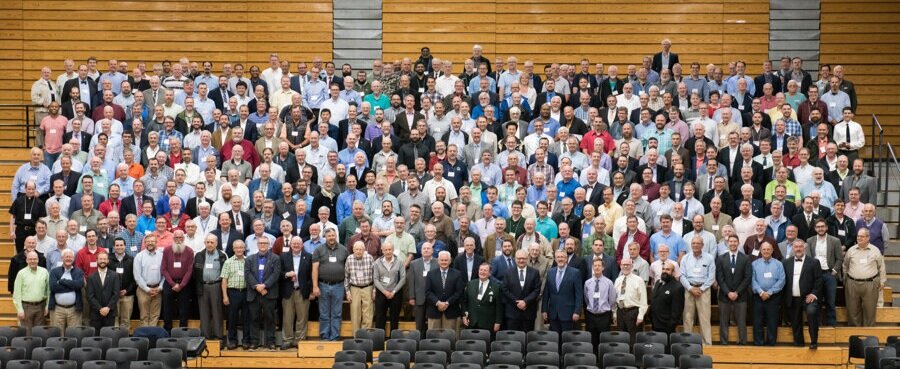Along with other denominations such as the International Presbyterian Church, Evangelical Presbyterian Church of England and Wales, and the Reformed Presbyterian Church of Ireland, the RP Church of Scotland has called for a day of fasting and prayer as an appropriate response to the current crisis.
The Canadian RP Churches will also be observing a day of prayer and fasting on Saturday specifically to tie in with us on Scotland. As they have put it, ‘praying together is a beautiful and blessed expression of the unity of the Church’.
Such a day provides an opportunity to:
Have an extended time of personal/family worship
Letting such times slip or descend into formalism may be the first thing to confess! If you would like Bible reading notes, the Let’s Worship God notes, produced by the RPCS, are available to read online.
Reflect on the current crisis in light of God’s word
One particularly helpful sermon preached in light of COVID-19 is ‘When God raises his voice’ (audio / transcript) by David Gibson in Aberdeen IPC. If you don’t have time for it all, his third point is particularly relevant to fasting and repentance in light of coronavirus.
Another helpful article is Responding to the Present Alarm.
Confess our sins as individuals (and families)
Confession of sin is a basic part of Christian prayer, but it’s easy just to be general - ‘and forgive my sins in Jesus’ name’. Or perhaps we just confess a few of the big, obvious sins in our lives. But one helpful list to work through is An A-Z of Hidden Sin.
In ordinary circumstances it might be good practice to work through a couple of these per day. But one of the reasons for setting aside a day of prayer is to provide time to search our hearts and confess our sin in more depth.
Confess our sin as churches
The fact that God has effectively cancelled Public Worship across the world as never before in the history of Christianity should make us ask how much we have really valued it. Some may need to confess not attending when they could have - others for being there in person but not properly engaging with it. Too often we have been ‘hearers of the word and not doers’ (James 1:22-23).
One idea might be to think of recent sermon series and confess how these things are not seen among us the way we should. For example:
- The Fruit of the Spirit: Simon Arscott (Gareth’s minister in London) recently shared a helpful congregational confession based on the Fruit of the Spirit.
- The Ten Commandments: The Larger Catechism (Question 104 following) lists duties required as well as sins forbidden by each commandment, with Scriptural references.
- The One Anothers: Even looking at the sermon titles may move us to confess areas where we haven’t lived up to the picture of a church that’s painted in the New Testament.
Confess our sins as a nation
In the words of the RPCI statement’s on COVID-19:
‘The nations of the United Kingdom and the Republic of Ireland have sought to write God out of national life. We have walked as though the God of the Bible was nothing more than an ancient myth, despite his existence being written in creation, in history, and in our consciences.
Created things have mattered more to us than the Creator. Our desire for self-fulfilment has over-written God’s good design for human flourishing. We have rejected his definition of marriage, and legislated against his image bearers in the womb. To our great shame, Jesus Christ, who was crucified to pay the debt for our sin and to bring us to God, is dishonoured daily in these islands’.
The RPCS statement says:
‘We call on our nation to repent of breaking its historical covenants (National Covenant 1638 and Solemn League and Covenant 1643) which began our apostasy from God and from the achievements of the Reformation; to repent of its disregard for the Law of God to pass heinous laws; to repent of the desecration of the Sabbath Day; of its lack of compassion for the weak and vulnerable, particularly in slaughtering the unborn in the womb; for its abuse of the Biblical institution of marriage; and numerous other grievous sins’.
Sing Psalms
In an article entitled ‘Practice Hospitality. Especially During a Pandemic’, Rosaria Butterfield writes:
‘Singing psalms is powerful spiritual medicine; by using our mouths and lungs to proclaim the Word in the hearing of others, we embody the way that the Word of God acts in our lives and in the world. Psalm-singing is an aid to repentance and spiritual clarity, and it provides the Christian with a bounty of strength, fortitude, and courage in the face of danger’.
Pray for those most affected
Pray for wisdom for our governments, including the Prime Minister and First Minister. Pray for strength for doctors (including those in our own congregation) and other medical staff. Pray for those working on a vaccine. Pray for the sick and dying, and their families. Pray for those particularly isolated. Pray for those who have lost their jobs.
Don’t forget the gospel!
‘If we say we have no sin, we deceive ourselves, and the truth is not in us. If we confess our sins, he is faithful and just to forgive us our sins and to cleanse us from all unrighteousness.' - 1 John 1:8-9.
As Rosaria writes: ‘We pray as COVID-19 is rapidly spreading through every nation and tongue, that true and heartfelt repentance will usher in revival. We pray that Christian revival will spread faster than COVID-19.’.







